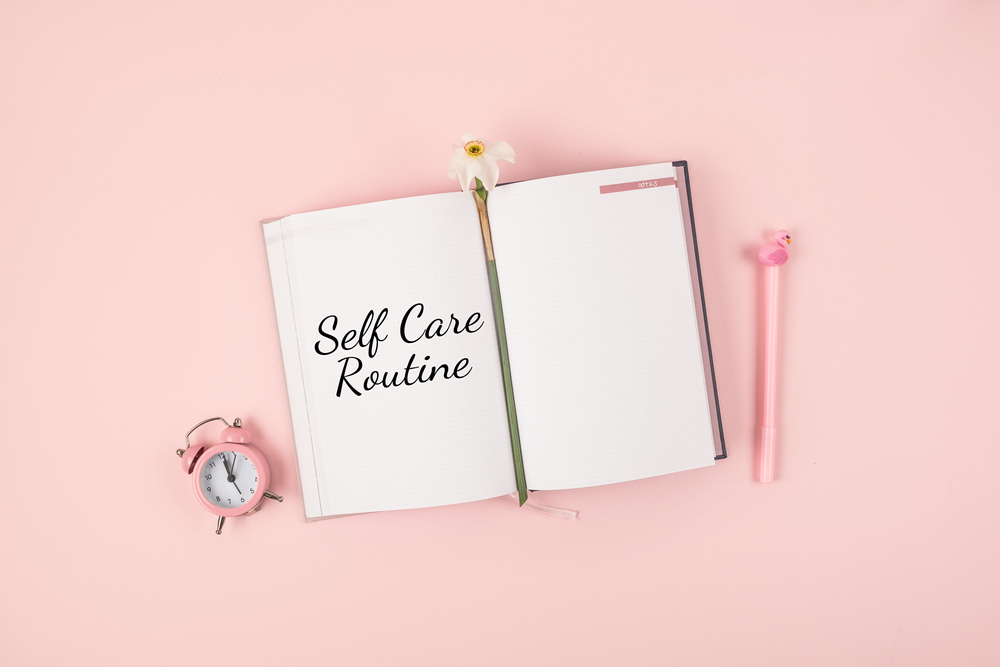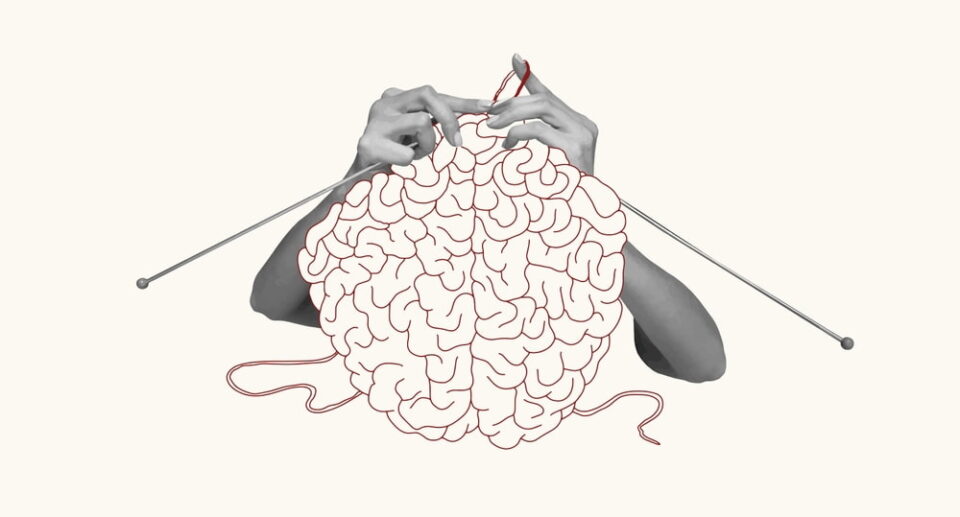Daily self care routine for mental wellness


Mental wellness is as important as physical health, and caring for your mind is key to a healthy, balanced life. A daily self care routine is essential for managing stress, maintaining mental clarity, and promoting overall well-being. Whether you’re dealing with a hectic work schedule, personal challenges, or simply looking to improve your mental health, simple self-care practices can make a difference.
In this article, we’ll explore the power of daily self-care, the importance of mental wellness, and effective strategies that anyone can incorporate into their everyday routine.
Why Is Mental Wellness Important?
Before getting to the part of how to do a self care routine, it’s a very significant point to consider why mental health is important. Your mind directs your thinking, emotions, and responses which might cause happiness or despair. It is also a great tool when it comes to stress management, staying connected with people, and decision-making. Mental health is not only about dealing with mental illness, it is mainly about being optimistic and living a balanced life.
The Benefits of Mental Wellness:
- Less stress and anxiety
- Stronger emotional resilience
- Healthier relationships with others
- Greater productivity
- Boosted self-esteem and confidence
Research shows that looking after your mental wellness can lower your risk of developing long-term issues like depression, anxiety, and even physical health problems such as heart disease. By practicing daily self-care, you’re setting yourself up for a healthier, happier future.


What is a Self Care Routine?
A self care routine is all about the activities you make time for each day to take care of your body, mind, and emotions. It’s not just about indulging in a spa day—self-care is about building habits that keep you grounded, focused, and emotionally in balance.
The Pillars of Self-Care:
- Physical Self-Care: Exercise, sleep, and eating well
- Emotional Self-Care: Managing stress and expressing your feelings
- Mental Self-Care: Practicing mindfulness, relaxation, and reframing your thoughts
- Social Self-Care: Building connections with others and setting healthy boundaries
Balancing these different aspects in your daily life is crucial for supporting your overall mental wellness.
Building Your Daily Self Care Routine for Mental Wellness
Now that you understand the importance of mental wellness and self-care let’s explore a practical daily routine to enhance your mental health.


1. Start Your Day with Mindfulness
Mindfulness helps you stay present and aware, which can greatly reduce stress and anxiety. Starting your day with mindfulness sets a positive tone for the day ahead.
How to Practice Morning Mindfulness:
- Set aside 5–10 minutes for mindful breathing or meditation.
- Focus on deep breathing through your nose and out through your mouth to calm your mind.
- Alternatively, practice guided meditation using apps like Headspace or Calm.
Benefits of Mindfulness:
- Reduces anxiety and stress
- Improves focus and concentration
- Increases emotional resilience


2. Nourish Your Body with a Balanced Breakfast
The food you eat directly impacts your mental health. Starting your day with a nutrient-dense breakfast can help stabilize your mood and energy.
Healthy Breakfast Ideas:
- A smoothie with spinach, banana, chia seeds, and almond milk
- Oatmeal topped with berries, nuts, and honey
- Avocado toast with eggs
Why It Matters: It is the nutrients like omega-3 fatty acids, vitamins, and minerals that have the importance of brain health and emotional stability. The research findings confirm the fact that a diet that is rich in nutrients increases mental acuity and reduces the incidence of mood swings.


3. Engage in Physical Activity
Exercise is one of the most effective ways to manage stress and boost mental wellness. Physical activity stimulates the production of endorphins, the brain’s natural mood enhancers.
Recommended Exercises for Mental Wellness:
- Morning walk or jog: Start your day with 15–30 minutes of light cardio to improve your mood.
- Yoga or stretching: Incorporate poses like a child’s and downward dog poses to reduce tension.
- Strength training: Lift weights or do bodyweight exercises to increase self-esteem and reduce anxiety.
Benefits of Exercise for Mental Wellness:
- Boosts endorphin levels, promoting happiness
- Improves sleep, reducing anxiety
- Enhances cognitive function


4. Take Breaks and Practice Relaxation
Stress is inevitable, but learning to relax is key to mental wellness. Schedule regular breaks throughout the day to recharge your mind and body.
Relaxation Techniques to Try:
- Deep breathing: Breathe deeply for a count of four, hold for four, and exhale for four.
- Progressive muscle relaxation: Tense each muscle group for a few seconds, then relax to release tension.
- Visualization: Imagine yourself in a peaceful, happy place to clear your mind.


5. Practice Gratitude and Positive Thinking
Developing a positive approach through thankfulness and having a different perspective on negative ideas is crucial to mental health. The findings demonstrate that the habit of gratefulness not only makes us happier but also reduces stress. Religious well-being is strongly associated with increased gratitude, as well as emotional and practical support, which are the two factors that have been found to help people with disabilities
Gratitude Practice:
- Keep a gratitude journal and write down three things you’re grateful for daily.
- Practice positive affirmations to reinforce self-love and self-worth.
- Replace negative thoughts with positive affirmations (e.g., “I am capable,” “I am worthy”).
Benefits of Gratitude:
- Increases happiness and reduces stress
- Enhances overall well-being
- Helps shift focus from negativity to positivity


6. Prioritize Quality Sleep
Sleep is essential for mental health. Lack of sleep can contribute to anxiety, depression, and decreased cognitive function. A consistent bedtime routine can improve the quality of your sleep.
Tips for Better Sleep:
- Maintain a consistent sleep schedule by going to bed and waking up at the same time each day.
- Avoid screen time at least 30 minutes before bed.
- Create a relaxing bedtime routine like reading or listening to calming music.
The Impact of Sleep on Mental Wellness:
- Enhances cognitive function and memory
- Improves mood and emotional regulation
- Reduces stress and anxiety
Real Stories of Self-Care Success
Here are some stories of individuals who have successfully integrated self care routines into their daily lives and experienced positive changes in their mental wellness:
1. Sarah’s Journey to Better Mental Health
Sarah, a marketing professional aged 34 years, used to experience being overwhelmed by constant stress and anxiety from her job of high pressure. After implementing a practice of mindfulness and physical activity on a daily basis as part of her schedule, she has observed a noticeable decrease in her anxiety levels. At this point, she practices yoga every morning and walks for a short distance every day, and, thanks to these activities, she remains focused and with an empty mind.
2. Mark’s Transformation with Gratitude
Mark, who is a 40-year-old parent, struggled with managing stress from his work. The good news was that he was asked to change this when his mood got better and he inspired himself every single day with positivity and also wrote out his gratitude journal. Mark devotes five minutes each morning to ponder all the things that he is thankful for which completely sets the tone as he starts the day happy and motivated.
3. Nina’s Self Care Routine for Work-Life Balance
Overloaded with her business and personal life, Nina, a 28-year-old entrepreneur, was not happy. If she were to make relaxation a priority and take regular breaks, she may be albe to balance her work and personal life better. These days, Nina does deep breathing exercises and attends personal journaling sessions every week as a part of her stress management program.
4. Carlos’ Mindfulness Practice for Anxiety Relief
Carlos, a 25-year-old student, had been fighting lifelong chronic anxiety. He began to incorporate mindfulness meditation each day for a few minutes and quickly discovered a great increase in his clarity and ability to concentrate. He learned to efficiently deal with the anxiety by waking up every morning ten minutes before the time allotted for mindfulness practice.
5. Rachel’s Commitment to Fitness
Rachel, the 30-year-old nurse, was struggling to keep her mental health on the right track because of the long shifts and the stress that came from her personal life. She started doing some workout almost every day that consisted of both strength and cardio exercises, which allowed her to get rid of the stress, relax and improve her mental state. Currently, her regular physical activities are her happy place and forms a central part of her self-care plan.
FAQ
Q: What is a daily self care routine for mental wellness?
A daily self-care routine for mental wellness includes simple habits like regular sleep, balanced meals, physical activity, mindfulness, and taking short breaks to relax and recharge your mind.
Q: How long should a daily self care routine take?
A daily self-care routine doesn’t need much time. Even 10–20 minutes a day of mindful breathing, journaling, walking, or stretching can significantly support mental wellness.
Start Your Daily Self-Care Journey Today
Establishing a daily self care regimen is one of the best things you can do to maintain good mental health. By incorporating mindful living techniques, exercising, and taking rest, you can deal with stress and improve your mental health. Always keep in mind that even minor alterations are capable of making significant impacts, especially if you are newly setting your goals or giving a facelift to your current routine.
Incorporate these strategies into your day and take the first step toward a healthier, happier you. Your mind deserves the care and attention you give to your body—so start your self-care journey today.









